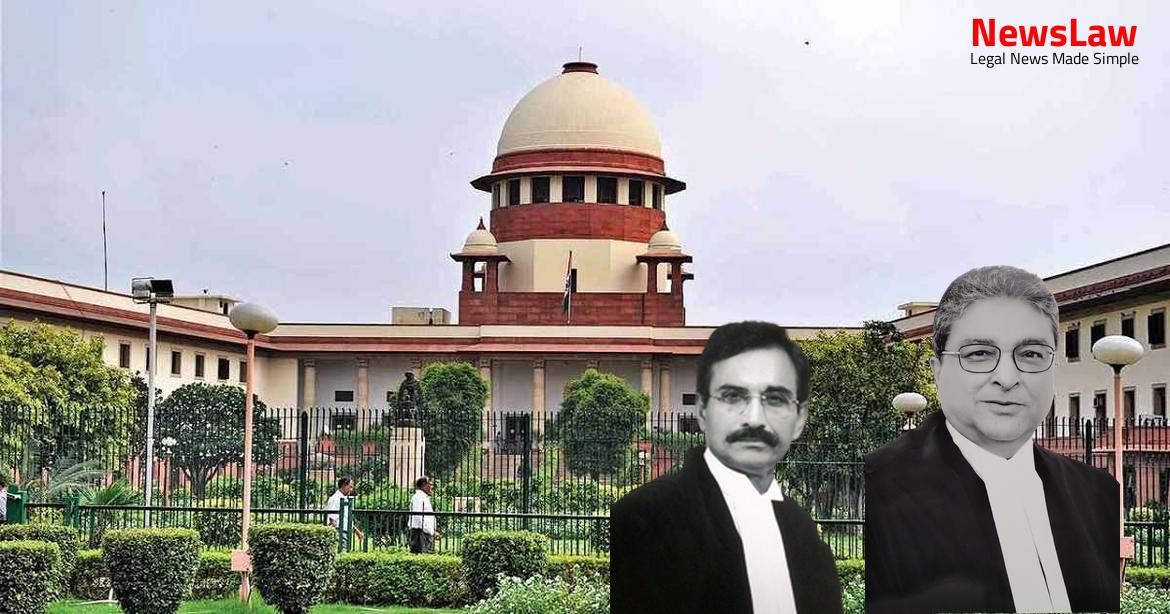Delve into a recent legal case where the court’s analysis of contract interpretation played a crucial role in resolving a dispute regarding the Scheduled Commissioning Date of a Solar Power Project. The case underscores the importance of clarity in commercial agreements and the court’s duty to uphold the expressed intentions of the parties. Let’s unravel the complexities of legal language in the context of renewable energy projects.
Facts
- Facts related to the commissioning of the Solar PV ground mount Power Plants in Karnataka as per the Request for proposal issued by KREDL.
- Projects awarded to the Respondents on 31.03.2016 and Power Purchase Agreements entered into on 23.05.2016.
- Incorporation of modifications suggested by the Karnataka Electricity Regulatory Commission in Supplementary Power Purchase Agreements on 17.12.2016.
- Formation of special purpose vehicles for setting up Solar PV ground mount Projects in Bidar Rural Taluk and Bagepalli Taluk.
- Approval of Power Purchase Agreements by Karnataka Electricity Regulatory Commission on 17.10.2016.
- Issuance of Commissioning Certificates for the Bidar and Bagpalli Projects on 25.10.2017 and 23.11.2017 respectively.
- Dispute related to reduction of tariff and imposition of damages for delay in commissioning the plants.
- The Appellate Tribunal for electricity allowed the Appeals filed by the Respondents and set aside the orders passed by the Karnataka Electricity Regulatory Commission.
- The Commission was of the view that the injection of power from the Solar Power Project into the Grid was on 17.10.2017, whereas KPTCL considered the commissioning date as 16.10.2017.
- The Commission dismissed the claims based on the difference in views regarding the commissioning date.
- The Respondents filed Appeals with the Appellate Tribunal for Electricity seeking a different interpretation of the commencement date for the Solar Plants.
- The Commission held the Scheduled Commissioning date for the Solar Power Projects as 16.10.2017 and emphasized the necessity of power injection into the Grid for considering a project as commissioned.
- The Tribunal noted that synchronization occurred before the commissioning of the Plant and agreed with the Developer’s scheduled commissioning date within the prescribed time limit.
Also Read: Legal Analysis on Seniority Fixation in Contempt Petitions
Issue
- Date of starting injection of power into the Grid for Solar Power Projects in OP No 18 of 2018 and OP 19 of 2018 is under consideration.
- Appellate Tribunal framed the point of whether the project was delayed by one day.
- Karnataka Electricity Regulatory Commission raised issues regarding the Scheduled Commissioning date of the projects in question (16.10.2017 vs. 17.10.2017).
- The concept of ‘Commissioning of the Project’ and ‘Commercial Operation of the Project’ in a Solar Power Project is being discussed.
Also Read: Judicial Analysis on Selection Process
Arguments
- The Appellant argued that there was no injection of power into the Grid until 17.10.2017, therefore, the Respondents are not entitled to tariff at the rate of 6.10/kWh.
- The learned Solicitor General criticized the Appellate Tribunal for interfering with a well-considered order of the Commission.
- He contended that the conclusion of the Appellate Tribunal about the SCOD being 17.10.2017 and not 16.10.2017 goes against the terms of the PPA.
- The Appellant emphasized that injection of power into the Grid is essential for determining the date of commissioning of a Solar Plant and cited clauses of the PPA to justify their argument.
- The Solicitor General argued that the Tribunal erred in relying on judgments related to the General Clauses Act since the PPA specifically excluded the applicability of this Act.
- Mr. Balaji Srinivasan, representing the Appellant, presented documents to support the regulatory commission’s interpretation of the agreement considering the first and last dates for determining the Scheduled Commissioning Date.
- He provided evidence from the record showing minimum power generation on 16.10.2017, which was used for auxiliary purposes and did not meet the requirement of injecting power into the Grid.
- It was argued that a Solar Power Plant is considered commissioned only when power is injected into the Grid.
- The Appellant challenged the judgment of the Appellate Tribunal for Electricity through these Appeals.
- The twelve months period for deciding the Scheduled Commissioning Date starts from 17.10.2016, the date of approval of PPA by KERC.
- Mr. Basava Prabhu S. Patil argued against interference with the judgment of the Appellate Tribunal, highlighting the agreement between the parties on the tariff of Rs. 6.10/kWh.
- Pointed out the distinction between commissioning of the Plant and the Commercial Operation date.
- Referenced various clauses of the PPA to support the exclusion of the date of PPA approval for the computation of twelve months for the Scheduled Commissioning Date (SCOD).
- Emphasized that injection of power to the Grid on 17.10.2017 is undisputed, indicating no default on the part of the Respondents.
- Asserted that computation of twelve months from 16.10.2017, excluding the date of PPA approval, would not harm the Respondents.
- Respondents’ alternative submission is that even if the date of PPA approval is not excluded, the twelve months end on 16.10.2017, the day the Plants were commissioned.
Also Read: Legal Analysis of Decision-making Authority in Municipality Dispute
Analysis
- The dispute in the Appeals revolves around the Scheduled Commissioning Date of the Solar Power Project, with disagreement on whether it is 16.10.2017 or 17.10.2017.
- The disagreement stems from the interpretation of the agreement clauses, specifically Article 1.2.1 (m) and Article 1.2.1 (k) of the PPA.
- The Commission relied on 1.2.1(m) to include 17.10.2016 in the 365-day period, leading to a Scheduled Commissioning Date of 17.10.2017.
- In contrast, the Appellate Tribunal favored Article 1.2.1(k), indicating that a Commercial Operation Date and Commissioning Date are the same.
- The Appellants argue for a tariff reduction due to a one-day delay in commissioning, based on the actual injection of power into the Grid on 17.10.2017.
- Liquidated damages, synchronization requirements, and applicable tariffs are additional points of contention in the disagreement between the parties.
- The interpretation of ‘Month,’ the Effective Date, and the events surrounding the PPAs approval by KERC are central to determining the outcome of the dispute.
- The definition of ‘Month’ as either 30 days or a Calendar month, and the obligations, penalties, and events specified in the agreement form critical aspects of the analysis.
- Developer to commence supply of power up to the Contracted Capacity to BESCOM no later than the Scheduled Commissioning Date
- Developer to continue the supply of power throughout the term of the Agreement
- Developer responsible for power evacuation from the Power Project to the nearest Delivery Point/Delivery points
- Liquidated Damages for delay in commencement of supply of power to BESCOM specified
- Definitions of months, period, and days clarified within the Agreement
- Developer to make weekly advance payments for any delay in commencement of power supply
- Liquidated Damages to be paid by Developer for delays in supply as per specified percentages of Performance Security
- The Court will choose a meaning that aligns with the purpose and intent of the contract.
- Judges do not easily accept linguistic mistakes in formal documents.
- If something seems wrong with the language based on background information, judges are not required to attribute intentions that the parties could not have had.
- Business commonsense should prevail over detailed semantic analysis in commercial contracts.
- The Court’s duty is to take the expressed intentions from the words used.
- In contract interpretation, every clause must be considered with reference to the contract’s object and all of its terms.
- The whole context should be considered to collect the parties’ intentions, even if the immediate focus is on an isolated clause.
- Liquidated damages can be imposed on the Developer if they fail to commence power supply as per the agreed date.
- Ambiguity in a clause may lead to two possible meanings.
- Article 1.2.1 (k) excludes Article 1.2.1 (m) in this case
- The Scheduled Commissioning Date is determined to be 17.10.2017
- Actual injection of power into the grid is not necessary to decide commissioning date
- Commissioning certificate issued by KPTCL states plants were commissioned on 16.10.2017
- Power was injected from the solar plants on 17.10.2017
- Commission error in applying 1.2.1 (m) instead of 1.2.1 (k) and Article 21.1 definition of month
- Definition of ‘SCOD’ mentions ‘twelve months’
- Article 1.2.1 (k) specifies a ‘Month’ as a calendar month
Decision
- The judgment of the Appellate Tribunal is upheld and the Appeals are dismissed.
- The developer is entitled to receive the tariff of Rs. 6.10/kWh of energy supplied to the Appellant as per the agreement.
- Four weeks time is granted to implement the judgment of the Appellate Tribunal upon the request of Mr. Balaji Srinivasan, learned counsel for the Appellant.
Case Title: BANGALORE ELECTRICITY SUPPLY COMPANY LIMITED (BESCOM) Vs. ES SOLAR PRIVATE LIMITED (2021 INSC 282)
Case Number: C.A. No.-009273 / 2019



